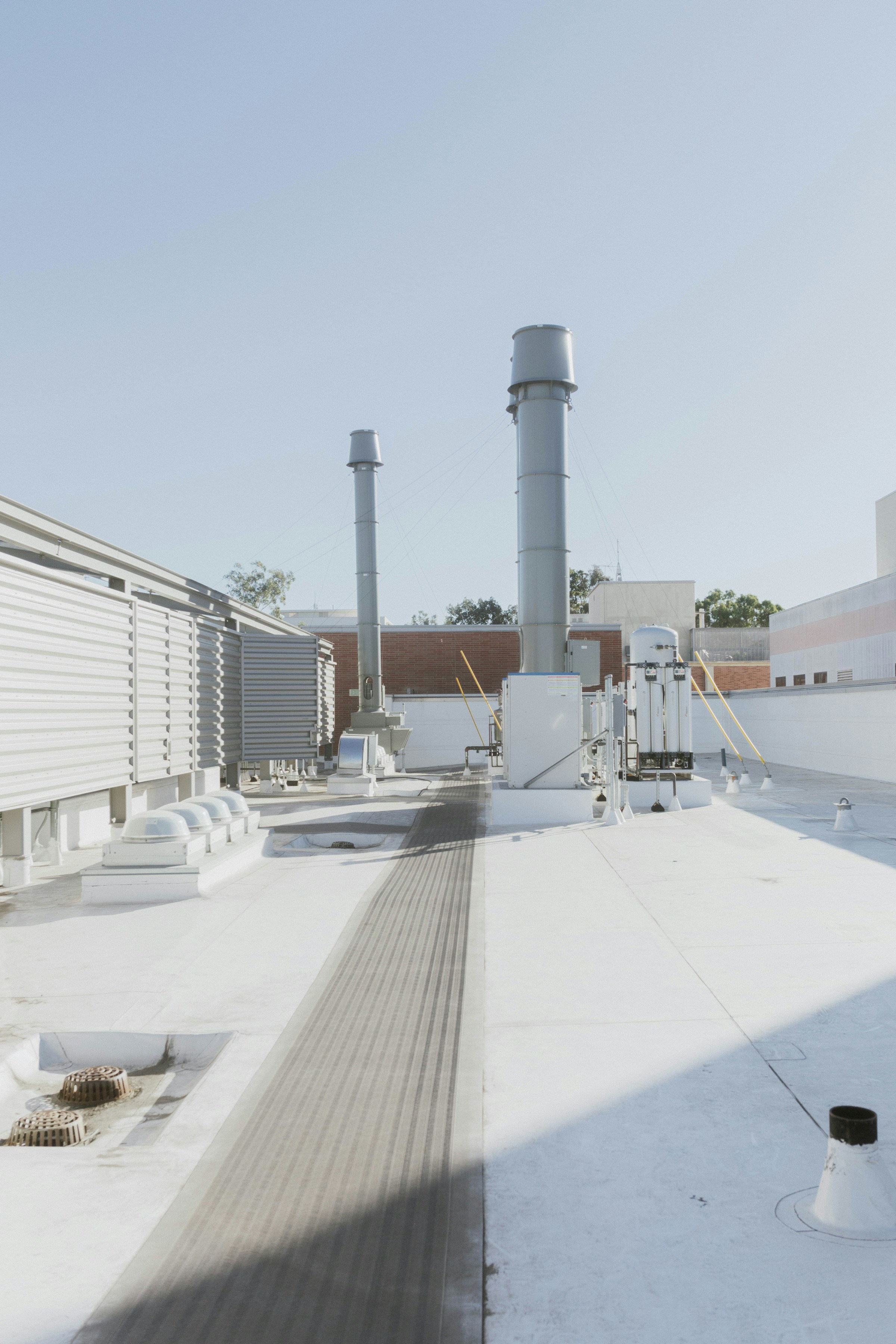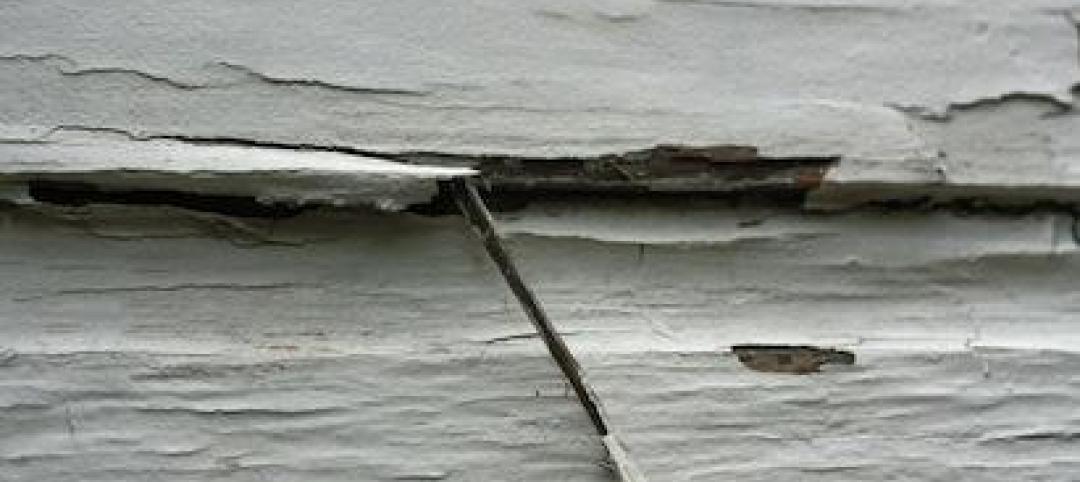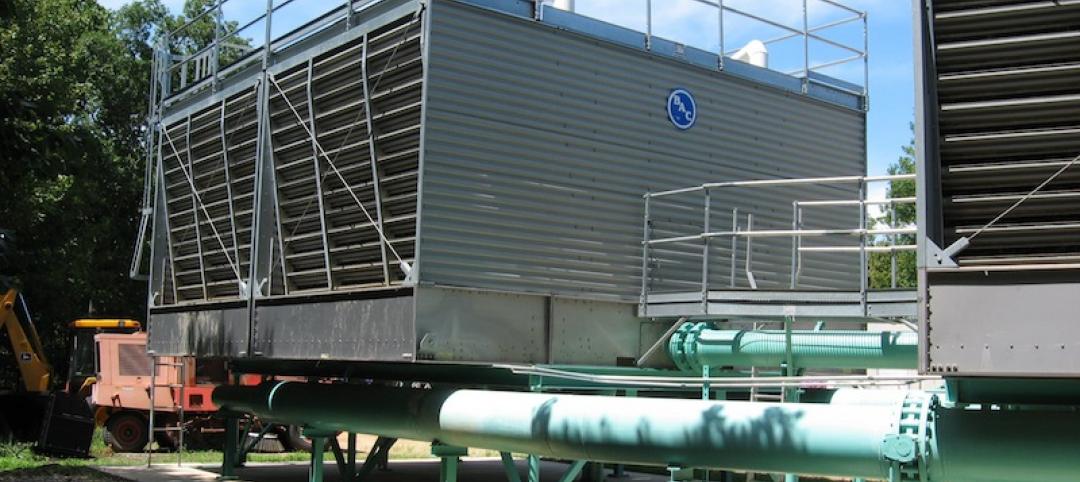A new technical brief from SPRI, the trade association representing the manufacturers of single-ply roofing systems and related component materials, addresses construction-generated moisture and its impact on commercial roofing systems.
Construction-generated moisture comes from activities including pouring concrete, burning propane heaters, painting, plastering, and drywall finishing. These activities can contribute to excessive levels of relative humidity inside the structure when proper remediation measures are not taken. Accumulation of condensation within the roofing assembly and within the structure can result when the temperature is at or below the dew point.
To control moisture, designers must identify the sources of moisture and develop a remediation plan during the design process. To reduce the probability of condensation, buildings under construction must be adequately ventilated, particularly during concrete hydration and other high moisture-related construction activities.
SPRI recommendations include avoiding the use of wet materials or materials with excessive moisture, installing vapor retarders in the roof assembly, avoiding penetrating vapor barriers, installing at least two layers of insulation, and always sealing deck-to-wall joints and gaps around roof penetrations.
Related Stories
| May 27, 2013
Bipartisan legislation filed to revamp EPA lead rule
Bipartisan legislation has been introduced in the U.S. House of Representatives to reform the Environmental Protection Agency's (EPA) Lead: Renovation, Repair and Painting (LRRP) Rule.
| May 27, 2013
Bill would mandate contractors use subs identified in bids on federal projects
Rep. Carolyn Maloney (D-N.Y.) filed a bill in May that would require prime contractors that bid on federal construction projects over $1 million to list each subcontractor they plan to use for $100,000 or more of work.
| May 27, 2013
Maryland law on codes for wind resistance will take effect in October
The Insurance Institute for Business & Home Safety says that Maryland citizens will be safer due to legislation passed by the legislature and signed into law by Gov. Martin O’Malley.
| May 23, 2013
AGC Contractors Environmental Conference focuses on compliance issues
The 2013 AGC Contractors Environmental Conference June 13 and 14 in Arlington, Va., will include cost-effective strategies for firms to remain compliant and competitive.
| May 23, 2013
ASTM releases new carbon steel hollow structural sections
ASTM has released a new HSS standard, A1085 - 13 Standard Specification for Cold-Formed Welded Carbon Steel Hollow Structural Sections (HSS).
| May 23, 2013
Group Health Puyallup medical center first project to achieve 'LEED for Health Care' certification
The Group Health Puyallup (Wash.) Medical Center is the first facility to be certified under the LEED for Healthcare (LEED-HC) rating system, earning LEED Gold.
| May 17, 2013
LEED v4 has provision to reduce water use in cooling towers
The next version of the U.S. Green Building Council's LEED rating system will expand water-savings targets to appliances, cooling towers, commercial kitchen equipment, and other areas.
| May 15, 2013
New York City Council okays plans for Cornell's huge net-zero tech campus
Cornell University's proposal to build a two million sf tech campus on Roosevelt Island has been approved by the New York City Council.
| May 15, 2013
Center for Green Schools, Architecture for Humanity release new tool for green schools
The 70-page guide demystifies the processes of identifying building improvement opportunities and finance and implementation strategies.
| May 15, 2013
AAMA extends NAFS certification on fenestration products
The American Architectural Manufacturers Association (AAMA) announced the release of an interim procedural guide that will provide a documented, optional process to extend current, unexpired AAMA product certification to any edition of AAMA/WDMA(/CSA) 101/I.S.2(/A440), North American Fenestration Standard/Specification for windows, doors, and skylights (NAFS).













